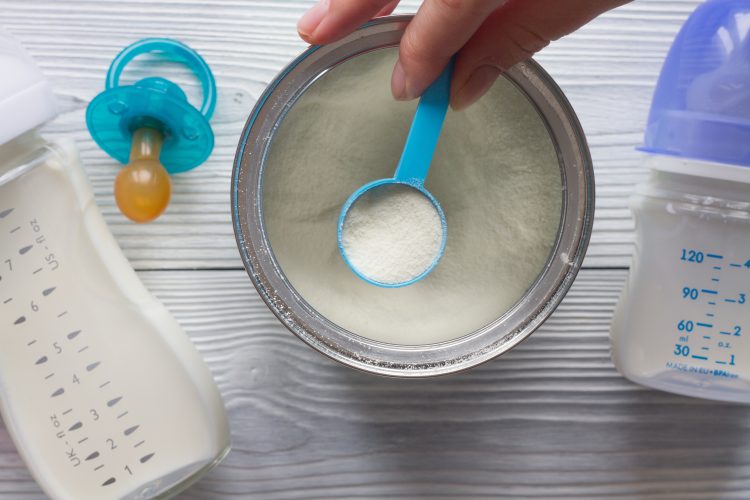FDA unveils national infant formula market strategy
- Like
- Digg
- Del
- Tumblr
- VKontakte
- Buffer
- Love This
- Odnoklassniki
- Meneame
- Blogger
- Amazon
- Yahoo Mail
- Gmail
- AOL
- Newsvine
- HackerNews
- Evernote
- MySpace
- Mail.ru
- Viadeo
- Line
- Comments
- Yummly
- SMS
- Viber
- Telegram
- Subscribe
- Skype
- Facebook Messenger
- Kakao
- LiveJournal
- Yammer
- Edgar
- Fintel
- Mix
- Instapaper
- Copy Link
Posted: 29 March 2023 | Grace Galler | No comments yet
The FDA has outlined an immediate national strategy that has been created to increase the resilience of the infant formula market in the US.


The US Food and Drug Administration (FDA) has released a national strategy that outlines actions the agency will immediately take to ensure that parents and caregivers have access to infant formula across the US.
“Safety and supply go hand-in-hand. We witnessed last year how a safety concern at one facility could be the catalyst for a nationwide shortage. That’s why we are looking to both strengthen and diversify the market, while also ensuring that manufacturers are producing infant formula under the safest conditions possible,” said Robert M. Califf, FDA Commissioner.
“Now, with this strategy, we are looking at how to advance long-term stability in this market and mitigate future shortages, while ensuring formula is safe.”
New Food has previously reported on infant formula shortages in the US, however the newly announced strategy contains numerous steps to increase the resilience of the market, including :
- Ensuring industry is aware of requirements to develop and implement redundancy risk management plans in order to help the industry identify risks to the supply chains of infant formula and medical foods and to develop mitigation plans against potential disruptions that could impact production.
- Continuing to enhance inspections of infant formula manufacturers, including by expanding and improving infant formula training for investigators.
- Expediting review of premarket submissions for new infant formula products to mitigate or prevent shortages.
- Continuing to monitor the infant formula supply and developing a forecasting model to enable FDA to prepare for and mitigate future supply disruptions.
- Engaging with US government partners about their role in mitigating other factors that may influence the infant formula supply to sustain the safe, continuous production of infant formula.
- Engaging with the US Department of Agriculture (USDA) to support efforts to build resiliency within its Special Supplemental Nutrition Program for Women, Infants, and Children (WIC).
- Continuing to advance the agency’s Strategy to help prevent Cronobacter sakazakii illnesses associated with consumption of powdered infant formula.
- Improving the agency’s consumer education materials relating to infant formula.
- Enhancing and leveraging the FDA’s partnerships with health care providers and professionals, particularly infant care professionals, to further expand the agency’s consumer education programme.
The FDA has said that the above actions are “well underway”. The Food and Drug Omnibus Reform Act (FDORA) has also called on the FDA to trace the events that led up to and followed the February 2022 Abbott Nutrition infant formula recall. It has also asked the FDA to look into the temporary pause in production at the facility in Sturgis, Michigan, as well as the factors that contributed to the fragility of this particular supply chain.
“The events that led up to and ultimately resulted in the voluntary recall of certain infant formula products in February 2022 shocked the infant formula supply in the US creating an unparalleled challenge for parents and caregivers,” said Susan Mayne, Director of the FDA’s Center for Food Safety and Applied Nutrition.
Stating that since 2022 the FDA has maintained “ongoing and extensive engagement” with the infant formula industry to “strengthen preventative control practices”, Mayne believes that the newly released strategy will “play an important role in increasing the resiliency of the infant formula market”.
Related topics
Food Safety, Health & Nutrition, Outbreaks & product recalls, recalls, Regulation & Legislation, retail, Supermarket, Supply chain, Trade & Economy









